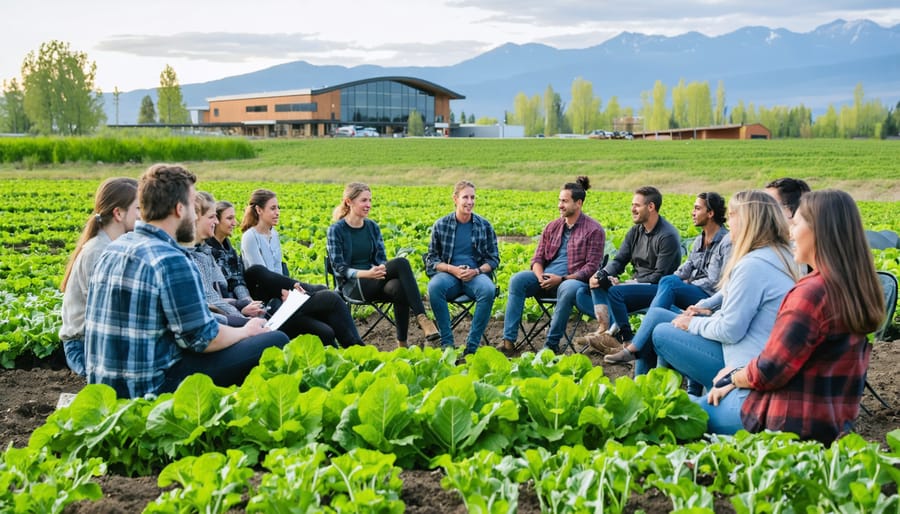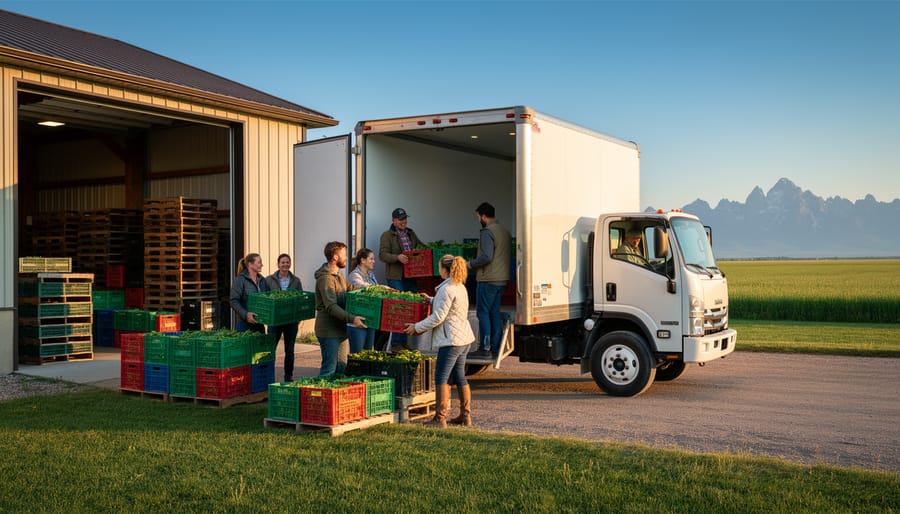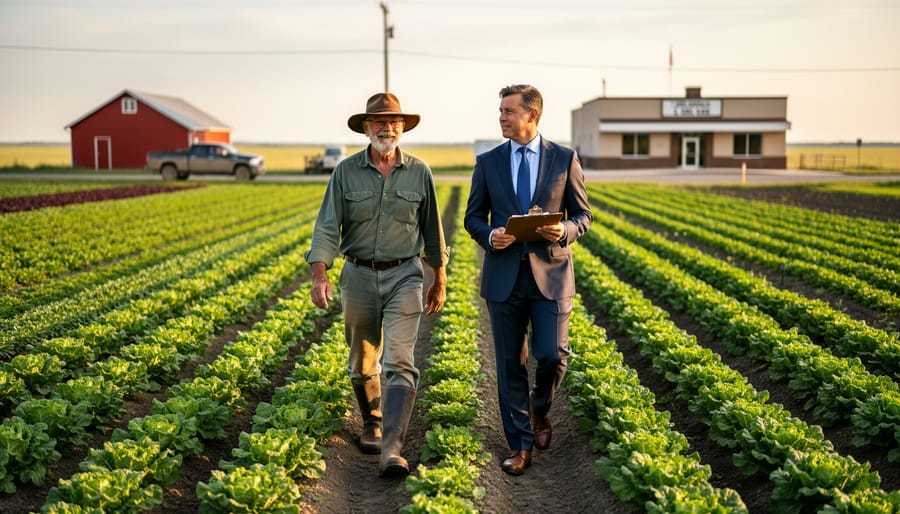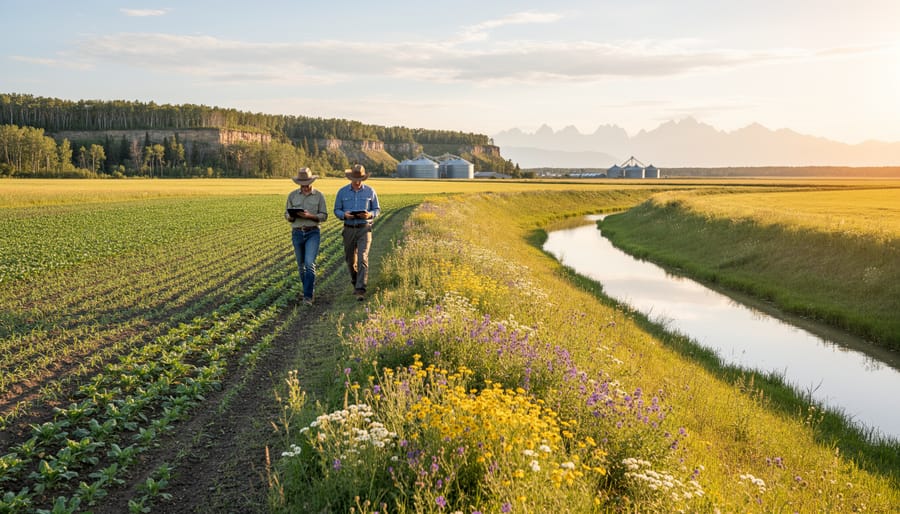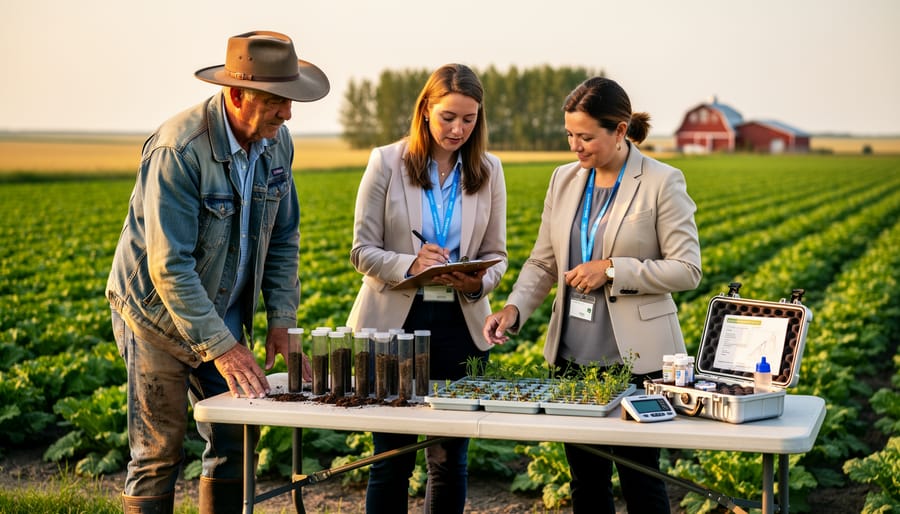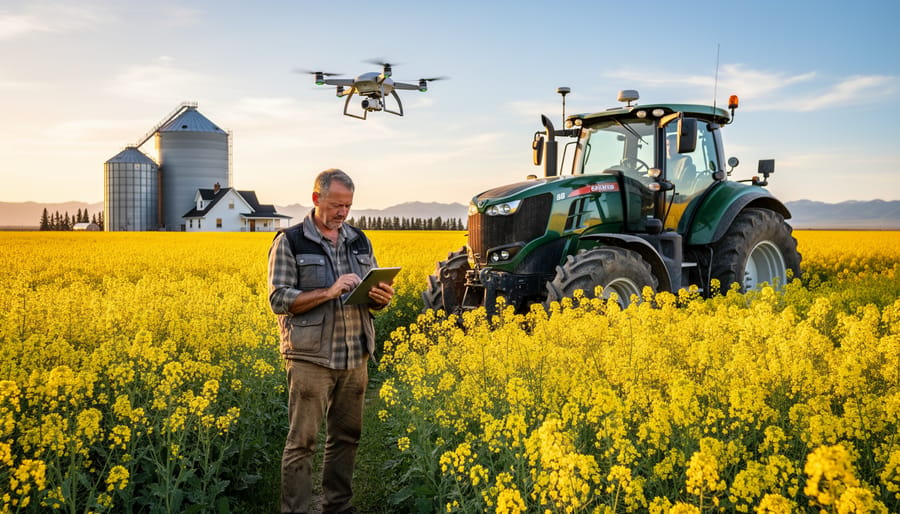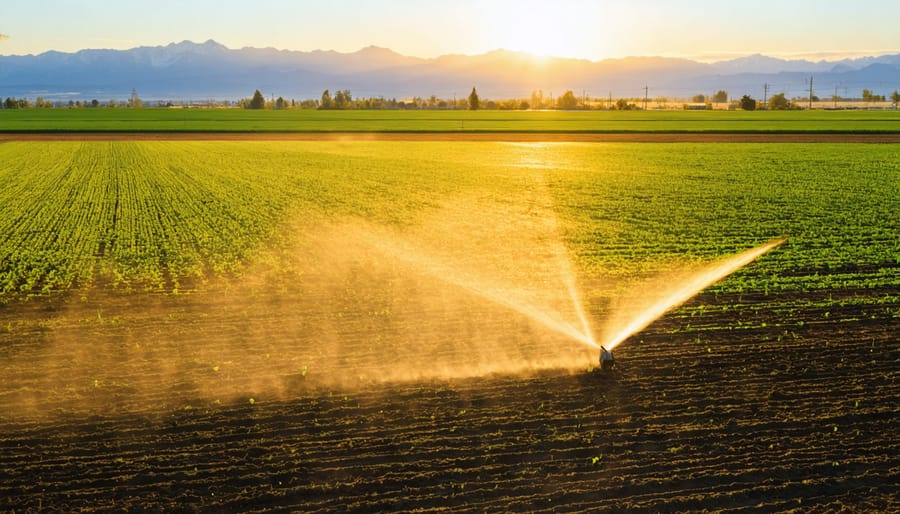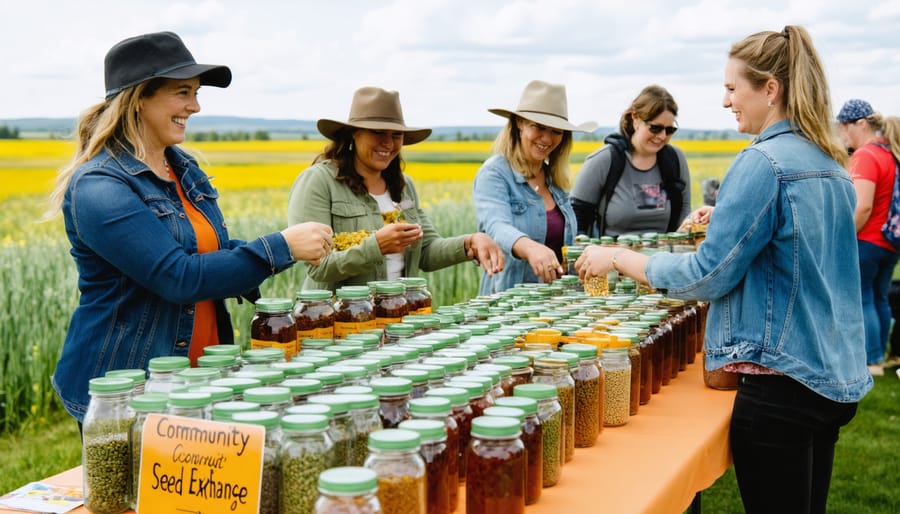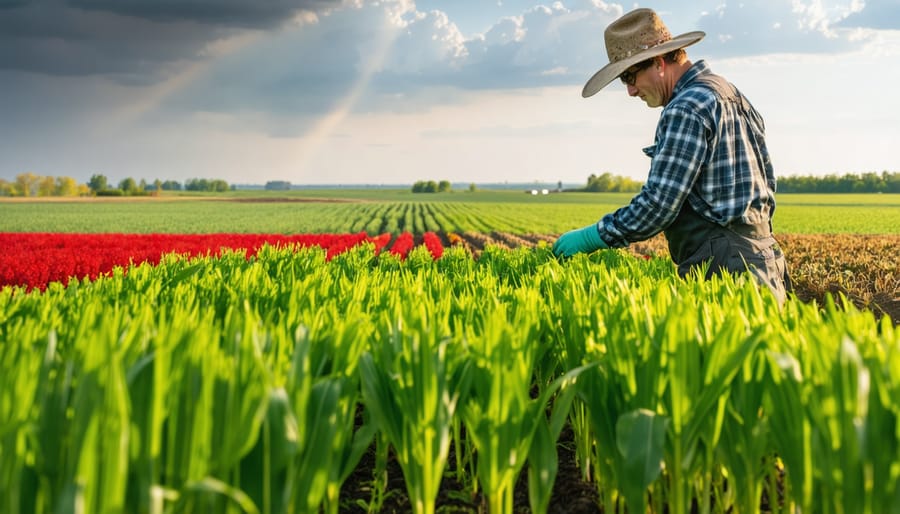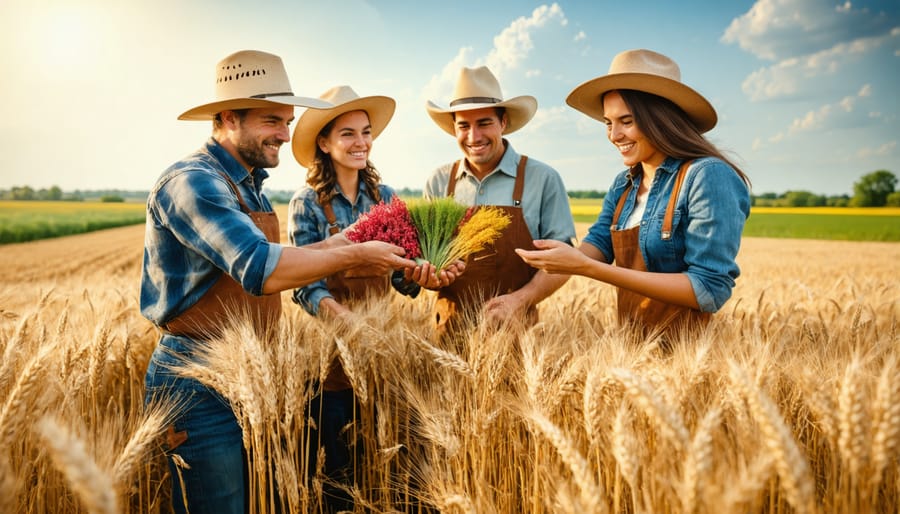Transform agricultural communities through educational partnerships by connecting local organic farmers with schools, community centers, and learning institutions. Pioneering grassroots community initiatives across Alberta demonstrate how knowledge-sharing networks strengthen regional food systems and preserve traditional farming wisdom. These collaborations create hands-on learning opportunities, from farm tours and workshops to mentorship programs, while building resilient local economies.
Successful partnerships between farmers and educators have already revolutionized sustainable agriculture training throughout Prairie provinces, with documented increases in organic certification rates and youth engagement in farming careers. By connecting experienced producers with aspiring farmers, these educational alliances address succession planning challenges while ensuring agricultural knowledge continues to flourish across generations.
The impact extends beyond farm gates – community education partnerships establish vital connections between urban and rural populations, foster food literacy, and create sustainable market opportunities for local organic producers. These collaborative learning models represent a cornerstone of Canada’s agricultural future, particularly in regions where traditional farming knowledge intersects with innovative sustainable practices.
The Power of Local Knowledge Exchange
Traditional Farming Wisdom Meets Modern Science
In Alberta’s evolving agricultural landscape, the integration of traditional indigenous farming practices with modern organic techniques is creating powerful learning opportunities. Local farmers are discovering that centuries-old methods of companion planting and natural pest management align perfectly with current sustainable farming principles.
Through community partnerships, experienced farmers are sharing knowledge about traditional crop rotation patterns while agricultural scientists contribute research-backed insights on soil health and biodiversity. This collaborative approach has led to innovative solutions, such as the Three Sisters planting method being adapted for larger-scale operations using modern equipment.
The Organic Learning Hub in Red Deer demonstrates this fusion brilliantly, where elders from local First Nations communities work alongside agricultural extension officers to teach integrated farming methods. Their demonstration gardens showcase how traditional water conservation techniques can be enhanced with current irrigation technology, resulting in water savings of up to 40% compared to conventional methods.
These partnerships are proving that the path to sustainable agriculture lies in respecting and combining both traditional wisdom and scientific advancement, creating resilient farming systems for future generations.
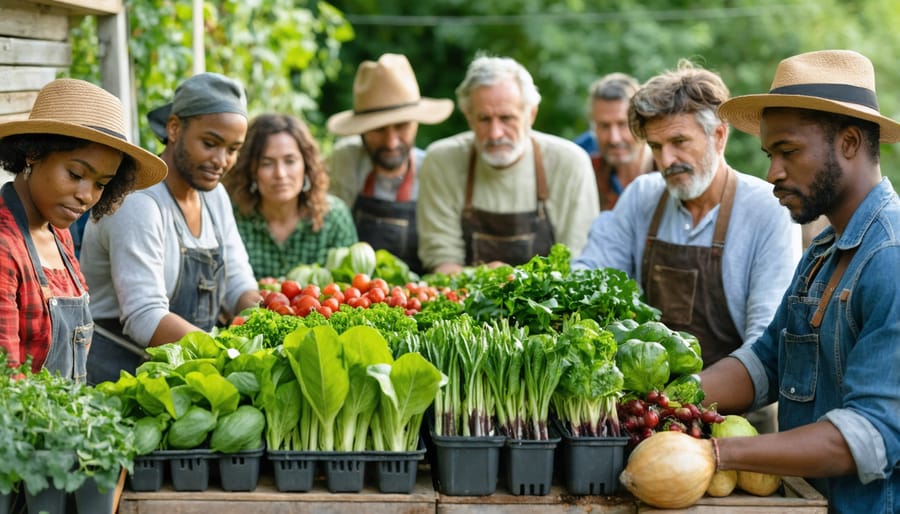
Success Story: The Red Deer Valley Learning Initiative
In 2018, the Red Deer Valley community transformed local agriculture education through a groundbreaking partnership between farmers, the regional agricultural society, and three local schools. The initiative began when Sarah Thompson, a third-generation farmer, recognized the growing disconnect between youth and agriculture in her community.
Working with local educators, Thompson developed a hands-on learning program that brought students to different farms throughout the growing season. Participating farmers shared their knowledge about sustainable farming practices, crop rotation, and soil health management. The program reached over 200 students in its first year, with remarkable results.
Local farmers reported increased community engagement and support, while teachers noted improved student performance in science and environmental studies. The initiative also created a mentorship program, pairing experienced farmers with agriculture students from the local college.
Today, the Red Deer Valley Learning Initiative serves as a model for other communities across Alberta. The program has expanded to include workshops for adults, seasonal farming demonstrations, and a community garden project that produces fresh vegetables for the local food bank. This success story demonstrates how targeted educational partnerships can strengthen both agricultural literacy and community bonds.
Building Effective Educational Partnerships
Identifying Community Needs
Before establishing any community education partnership, it’s essential to conduct a thorough assessment of local educational needs. In Alberta’s farming communities, this process typically begins with informal conversations at agricultural society meetings, farmers’ markets, and community gatherings. These discussions often reveal valuable insights into specific knowledge gaps and learning opportunities.
To gather more structured feedback, consider organizing focus groups with local farmers, agricultural professionals, and community members. These sessions can help identify specific areas where educational initiatives would be most beneficial, whether it’s sustainable farming practices, new technology adoption, or succession planning.
Surveys are another effective tool, particularly when distributed through local agricultural associations and community networks. Online surveys can reach a broader audience, while paper surveys at local agricultural events can capture input from those who may be less digitally connected.
Local agricultural extension offices and farming cooperatives often maintain databases of frequently asked questions and common challenges. This information can be invaluable in identifying trending topics and emerging needs within the farming community.
Don’t forget to consult with existing educational institutions, including agricultural colleges and research stations. They can provide valuable data on current educational gaps and potential partnership opportunities. Remember to consider seasonal timing when planning assessments, as farmers’ availability varies significantly throughout the growing season.
By systematically identifying community needs, you can ensure that your educational initiatives are both relevant and impactful for local agricultural communities.
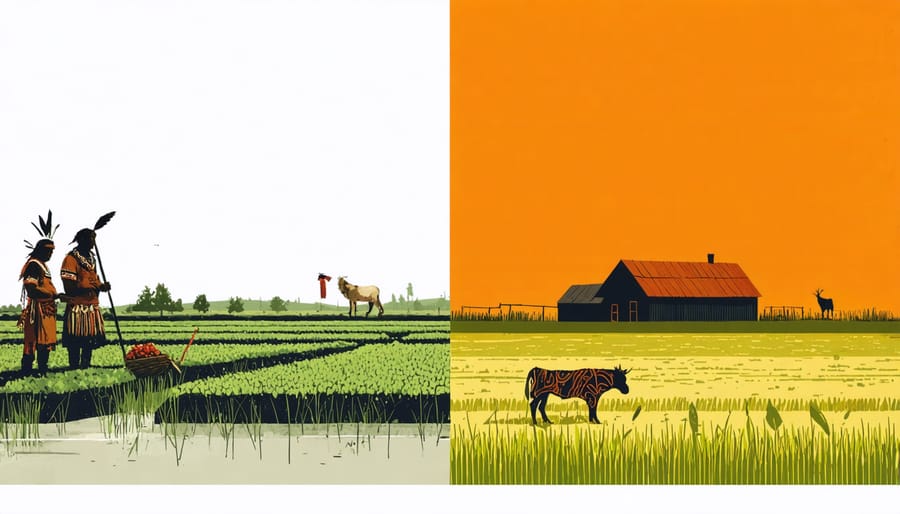
Engaging Local Experts and Institutions
Building strong partnerships with local experts and institutions is fundamental to creating successful community-powered organic solutions. In Alberta, successful agricultural education initiatives often start by connecting with regional agricultural specialists and extension agents who bring valuable expertise and resources to the table.
Consider reaching out to local agricultural colleges and universities, such as Olds College or Lakeland College, which often have established programs and faculty eager to engage with community projects. These institutions can provide both technical knowledge and student volunteers who bring fresh perspectives to farming challenges.
Local agricultural societies and farmer-led organizations are excellent partners for educational initiatives. They typically have established networks and can help coordinate workshops, field days, and mentorship programs. The Alberta Farm Fresh Producers Association and Organic Alberta, for instance, regularly collaborate with farmers to deliver practical learning experiences.
Don’t overlook the potential of working with local schools and 4-H clubs. These partnerships can create meaningful connections between young learners and agriculture while helping to build the next generation of organic farmers. Many successful programs have started by inviting classes to participate in farm tours or establishing school gardens.
Conservation authorities and environmental organizations can also enhance educational partnerships by providing expertise in sustainable land management and biodiversity. Their involvement often leads to more comprehensive learning experiences that benefit both farmers and the broader community.
Practical Implementation Strategies
Workshop Development and Delivery
Developing effective workshops requires careful planning and a deep understanding of your farming community’s needs. Start by conducting informal surveys at local agricultural events or through producer associations to identify knowledge gaps and areas of interest. This approach has proven successful for many Alberta farming communities, helping ensure workshop content remains relevant and practical.
When designing your workshop curriculum, focus on creating hands-on learning opportunities. For example, the Southern Alberta Organic Connection successfully combines classroom-style presentations with field demonstrations, allowing participants to see sustainable farming techniques in action. Structure your sessions to include 60% practical application and 40% theory, maintaining engagement throughout.
Consider partnering with local agricultural experts and experienced farmers to deliver content. These collaborations bring credibility and real-world experience to your workshops. The Red Deer Agricultural Society’s mentorship program demonstrates how pairing experienced organic farmers with newcomers can enhance learning outcomes and build lasting community connections.
Timing is crucial for workshop delivery. Schedule sessions during off-peak farming seasons, typically November through March in Alberta, to maximize attendance. Offer flexible timing options, including evening sessions and weekend workshops, to accommodate diverse farming schedules.
Document participant feedback and workshop outcomes systematically. Use simple evaluation forms and follow-up surveys to measure impact and gather suggestions for improvement. Many successful programs, like the Organic Alberta Workshop Series, have evolved based on direct participant input.
Remember to create resource materials that participants can take home. These might include practical guides, checklists, and contact information for local support networks. The most effective workshops often lead to ongoing learning communities where farmers continue sharing knowledge long after the formal sessions end.
Measuring Success and Impact
Success in community education partnerships can be measured through both quantitative and qualitative metrics that reflect the impact on farmers and their communities. In Alberta, successful programs often track participation rates, knowledge retention, and practical implementation of learned techniques on local farms.
Key performance indicators typically include the number of workshops conducted, attendance figures, and the diversity of participants. More importantly, programs measure the adoption rate of sustainable farming practices taught during sessions, tracking how many farmers implement new methods within their first growing season.
Post-program surveys provide valuable insights into participant satisfaction and learning outcomes. These assessments often reveal both immediate benefits and long-term impacts on farming operations. For example, the Central Alberta Organic Farmers Association reported that 85% of participants in their 2022 mentorship program successfully transitioned to organic practices within 18 months.
Community benefits can be evaluated through economic indicators such as increased local market participation, new business relationships formed, and growth in farm-to-table initiatives. Environmental impact measurements might include reduced chemical inputs, improved soil health metrics, and increased biodiversity on participating farms.
Social impact indicators are equally important, such as the number of new collaborations between farmers, increased youth engagement in agriculture, and strengthened relationships between urban and rural communities. The Farmer-to-Farmer Knowledge Network in Southern Alberta demonstrates this success, with over 200 active members sharing expertise and resources.
Regular program reviews, conducted quarterly or annually, help identify areas for improvement and ensure partnerships remain relevant to community needs. This continuous evaluation process allows for adaptive management and ensures programs evolve with changing agricultural practices and community requirements.
Future Growth and Sustainability
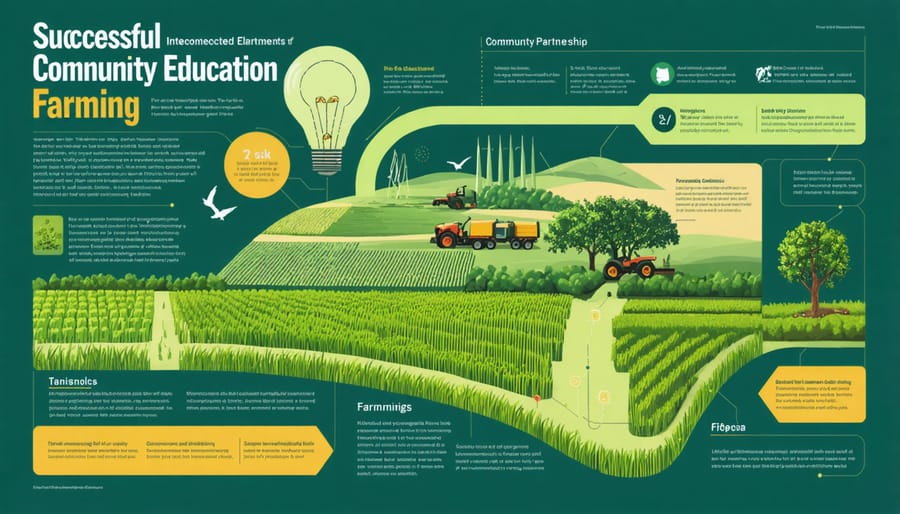
Scaling Success Across Alberta
Expanding successful community education partnerships across Alberta requires a thoughtful, systematic approach that respects each region’s unique characteristics. The key to scaling these programs lies in creating adaptable frameworks that can be customized to meet local needs while maintaining core educational objectives.
Several Alberta communities have developed effective scaling strategies, including the creation of regional hubs that serve as mentorship centers for emerging partnerships. These hubs provide resources, training materials, and experienced coordinators who can guide new communities through the implementation process.
Documentation plays a crucial role in successful scaling. Communities that have established successful programs maintain detailed records of their processes, challenges, and solutions, creating valuable blueprints for others to follow. The Organic Alberta Network has developed a standardized toolkit that helps new communities launch their own education partnerships while allowing for local adaptations.
Technology has become increasingly important in scaling efforts. Virtual learning platforms and digital resource-sharing networks enable remote communities to participate in established programs and access expertise from across the province. These digital tools also facilitate regular communication between partner communities, creating a province-wide support network.
Funding models have evolved to support scaling initiatives, with successful communities helping newer ones navigate grant applications and develop sustainable funding strategies. This collaborative approach ensures that financial barriers don’t prevent program expansion while fostering a spirit of mutual support among Alberta’s farming communities.
Securing Long-term Support
Securing sustainable support for community education partnerships requires a strategic approach that combines financial planning with strong community engagement. Start by exploring available funding support through provincial and federal agricultural programs, which can provide initial resources for program development.
Build lasting partnerships by demonstrating clear value to all stakeholders. Document and share success stories from local farms that have benefited from educational initiatives. For example, the Lakeland Agricultural Research Association’s mentorship program has shown a 40% increase in sustainable farming adoption rates among participating farms.
Create a diverse funding portfolio by combining government grants, private sector sponsorships, and community contributions. Consider implementing a membership model where participating farms contribute based on their capacity while receiving tangible benefits like priority access to workshops and consulting services.
Maintain community buy-in through regular communication and transparency. Host quarterly meetings to share progress reports and gather feedback. Establish an advisory board comprising local farmers, agricultural experts, and community leaders to guide program direction and ensure relevance to regional needs.
Focus on measuring and communicating impact through concrete metrics such as participant satisfaction rates, knowledge transfer success, and improvements in farm productivity. This data-driven approach helps justify continued support and attracts new partners to ensure long-term program sustainability.
Community education partnerships have proven to be powerful catalysts for advancing sustainable agriculture across Alberta. Through the examples and strategies discussed, we’ve seen how these collaborations create lasting positive impacts on both farming practices and community well-being. From knowledge-sharing initiatives at local farmers’ markets to hands-on workshops in school gardens, these partnerships build stronger, more resilient agricultural communities.
The success of these programs relies on active participation from farmers, educators, and community members alike. By joining forces, we can create educational opportunities that benefit everyone involved – farmers gain support and recognition for their sustainable practices, while community members develop a deeper understanding of local food systems and agricultural heritage.
We encourage you to take the first step in building these vital connections. Consider reaching out to your local agricultural society, joining a mentorship program, or offering your expertise to nearby schools. Even small initiatives, such as hosting a farm tour or participating in community events, can spark meaningful educational partnerships.
Remember, sustainable agriculture thrives on shared knowledge and community support. Whether you’re an experienced farmer or just beginning your agricultural journey, your involvement in community education helps secure the future of farming in Alberta. Together, we can cultivate not just crops, but also understanding, appreciation, and support for sustainable agricultural practices across our region.
The time to act is now. Reach out, connect, and become part of the growing network of community education partnerships shaping the future of Canadian agriculture.

